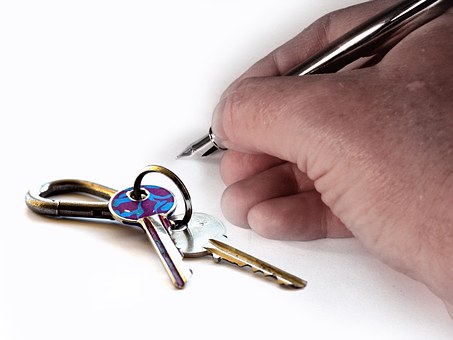
In 2017, about 37 percent of sold houses were acquired by buyers who don’t live in those properties — a percentage which includes the nation’s growing number of landlords.
But while landlords are playing a more substantial role in the current US housing market, that doesn’t always mean every landlord is an expert right away. It takes a lot of practice and self-discipline to really succeed in this sector. And often, that starts with having a foolproof system for keeping organized. If you’re new to property management or simply want to amp up your efforts, here are some essential organization tips you’ll want to keep in mind.
Get all agreements in writing
You’d be surprised by how many landlords (even experienced ones) forget to record important agreements in writing. Although all property managers hope their tenants are trustworthy, you need to make every effort to protect yourself against potential legal fallout. Verbal agreements aren’t always adequate, so get in the practice of documenting everything in writing. That means you should always follow proper procedures for leasing a property and notifying tenants when issues arise.
In the digital age, emails and text messages also play an important a role in maintaining clear records, just like printed and signed documents. It’s important to save all records of communication to prevent misunderstandings, ensure tenant satisfaction, and disprove any case for negligence in the future.
Maintain a filing system
You can’t possibly keep all your properties and tenants straight (or expect to file your taxes properly each year) without a phenomenal filing system. When you’re responsible for so much, you can’t afford to waste all your time searching for misplaced papers. To avoid that, files should always include original copies of leases and rental applications, inspection reports, tenant information, photocopies of rent checks, service agreements and invoices, tenant notices, property improvement records, property photos, utility bills, property deeds, insurance policies, mortgage agreements, and any necessary tax documents. Be sure to update these files on a regular basis and to keep them separated to avoid mix-ups.
Use technology to your advantage
Maintaining a physical paper trail is important, but it doesn’t mean you should reject technological advancements that can make your job easier. Pew Research Center data shows that more Americans are renting now now than at any time during the last 50 years, so anything you can do to streamline the process will be a welcome relief. You can use technology to conduct background checks and credit checks, prepare your taxes, keep records of payment issues, and organize spreadsheets. There’s even free landlord software to help you manage the entire process from start to finish.
Make maintenance requests a breeze
As a landlord, you’re given the legal responsibility of maintaining a property that’s safe and sanitary. You must exercise due diligence and due care, which means you need to identify potentially harmful issues and take action to rectify them in a timely manner. When tenants can submit their requests easily and know that those requests will be handled promptly, you’ll boost tenant satisfaction and avoid legal issues.
If you manage a large apartment building with multiple tenants, consider keeping an 11×17 clipboard of maintenance requests and fulfillment records right in the main lobby. Alternatively, you could create a digital system which allows tenants to submit requests online, and provide updates about when the work will be completed. Systems like these can help you keep track of high-priority tasks and help you avoid late or incomplete rent payments as recourse.
When you manage multiple properties, it’s tough to keep track of all the moving parts. But to be successful in your field, you might need to improve your organizational efforts. By following these tips, you’ll be able to move up the ranks and juggle a large number of tenants with ease.



